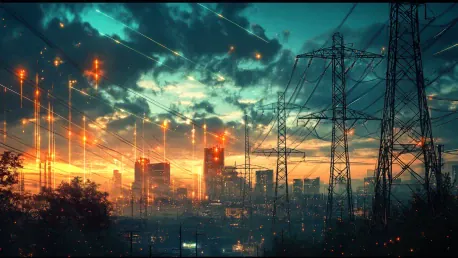The recent decision to terminate contracts for the Clean Path NY project has left New York grappling with the challenge of meeting its ambitious climate goals. Spanning 175 miles, the transmission line aimed to bring nearly 5 GW of wind, solar, and hydroelectric power into New York City by 2027. This project was vital for the state to achieve its renewable energy targets, which included consuming 70% renewable electricity by 2030 and achieving a zero-emission electric grid by 2040. The New York State Energy Research and Development Authority (NYSERDA) and the project’s developers, Forward Power, which is a collaboration between the New York Power Authority and Forward Power, themselves a joint venture of energyRe and Invenergy, mutually agreed to terminate the contracts, putting the state’s climate aspirations at risk.
NYSERDA had finalized contracts with Clean Path in 2021, with New York Governor Kathy Hochul lauding the initiative as a significant advancement towards the state’s climate objectives. However, the recent termination of the project’s Tier 4 Renewable Energy Credit (REC) Purchase and Sale Agreement underscores a considerable setback. Designed to support projects specifically delivering renewable energy to New York City, Tier 4 RECs were essential for reducing the city’s reliance on aged fossil fuel power plants. This move now forces New York to explore alternative solutions to overcome its significant transmission challenges while adhering to its environmental goals. As a result, the present focus is on finding methods to efficiently and sustainably deliver power to the city.
Exploring Alternative Solutions
As New York scrambles to address its energy needs following the termination of the Clean Path NY project, it faces the pressing issue of finding suitable alternatives. Forward Power’s spokesperson Amy Varghese emphasized the company’s commitment to evaluating solutions that would ensure the reliability and affordability of the state’s electric grid, while also fostering job creation and improving air quality. The state’s existing energy transmission bottlenecks present a notable challenge in providing a seamless transition to renewable energy sources. New York City, heavily dependent on older fossil fuel power plants, must now pivot towards new strategies and projects to meet its energy needs.
The New York Independent System Operator’s (NYISO) 2024 Reliability Needs Assessment has raised concerns about potential electricity shortfalls in the city. The assessment predicts a significant 17 MW deficit in 2033, escalating to 97 MW by 2034, which could jeopardize the city’s energy stability if not addressed. The report underscores the urgency in finding alternative energy solutions and highlights the critical need for operational efficiency. Should the Champlain Hudson Power Express transmission project, another major initiative to bring power from Québec to New York City, not be operational by 2026, the city’s reliability margins could falter even sooner. This only adds to the pressure on state authorities and energy developers to expedite measures ensuring a steady and sustainable power supply.
The Unwavering Quest for Renewable Energy
The recent termination of contracts for New York’s Clean Path NY project has posed a significant challenge for the state in meeting its ambitious climate goals. This 175-mile transmission line was set to deliver nearly 5 GW of wind, solar, and hydroelectric power to New York City by 2027, crucial for reaching targets of 70% renewable electricity by 2030 and a zero-emission grid by 2040. The New York State Energy Research and Development Authority (NYSERDA) and developers, Forward Power – a joint venture between the New York Power Authority, energyRe, and Invenergy – agreed to cancel the contracts, jeopardizing New York’s climate objectives.
NYSERDA had finalized agreements with Clean Path in 2021, with Governor Kathy Hochul praising the project as a major stride towards climate goals. However, the project’s Tier 4 Renewable Energy Credit (REC) Purchase and Sale Agreement’s recent cancellation marks a significant setback. Tier 4 RECs aimed to deliver renewable energy specifically to New York City, reducing dependency on old fossil fuel plants. Now, New York must find alternative solutions to address its transmission challenges and meet environmental goals, ensuring efficient and sustainable power delivery to the city.









